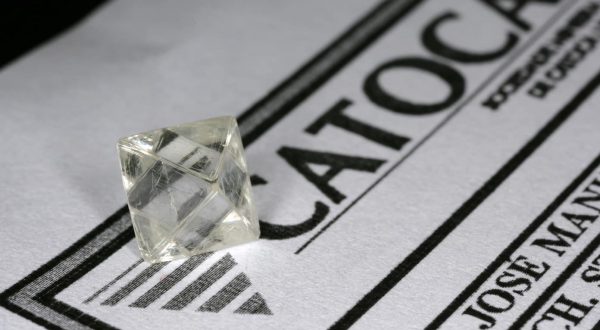BRITISH MARKET FACES UNCERTAINTY AS BREXIT LOOMS
Brexit, the process by which the United Kingdom is set to withdraw from the European Union, is still up in the air, with the economic consequences on the British economy in general, and the country’s jewelry and diamond industry in particular, likely to be considerable, particularly if the so-called “hard Brexit” cannot be avoided.
The UK had been hurtling toward a hard Brexit on March 29, the two-year deadline that had been created in 2017, when the British government invoked Article 50 of the Treaty on European Union, by which it gave formal notice to the European Council of its intention to withdraw from the EU.
But on March 14, the British parliament voted to ask the EU to postpone the deadline, and one week later the heads of state and government of the 27 remaining EU member states agreed to do so until May 22, on the strict condition that the UK parliament approves an earlier withdrawal agreement that had been reached between Downing Street and Brussels. But if the UK parliament would not be not able approve the withdrawal agreement by March 29, Brexit will be delayed only until April 12, and the UK will then have one of four choices: to approve the agreement after all, to ask for a longer postponement, to cancel Brexit, or to resign itself hard Brexit.
There appears to be general agreement that a hard Brexit should be avoided, and indeed such a sentiment was expressed in a non-binding vote passed by the parliament in Westminster. The problem is that the Conservative-led government has struggled to find support for deal that it negotiated itself with the European Union. The Britain’s parliament voted against the agreement January 15 and again on March 12, and the prospects for a change of heart by March 29 seem slim.
THE DAY AFTER BREXIT COMES TO PASS
The fear of a hard Brexit is not unfounded. The day that happens – if it happens – the British people will wake up to discover that very few contingencies have been put in place that enable then to function in the new environment.
Consequently, where goods and services have been moving from country to country within the European Union without any customs or tariffs, and a uniform regulatory regime has been in place throughout region, overnight the only rules governing the process will be those that exist as a result of the UK being part of the World Trade Organization.
Goods that previously would have crossed the border as if it did not exist, will be stopped and quarantined. Pessimists suggest that orderly trade could be paralyzed for months.
For members of the diamond and jewelry trades that have bringing merchandise in from Antwerp, and from jewelry manufacturers in Italy and France, not only will be difficult to release goods from customs, but in all likelihood that will also include customs levies that to date have not existed.
Another issue will be the fact that the United Kingdom is not a member of the Kimberley Process, since it is the European Commission that currently represents all EU-member countries in the forum, and issues KP certificates on parcels of authorized rough diamonds when they are exported. The UK would have to apply for independent membership in the international alliance, but today this has not happened. Until such time as that does, it could find itself locked out of the rough diamonds trade.
Britain’s not being a member in Kimberley Process could have resulted in a major breakdown in the international were it not for the fact that De Beers’ sales headquarters was transferred from London to Gaborone, Botswana, in 2012 and 2013, years before the Brexit vote was even seriously considered. But De Beers remains headquartered in the British capital, as so many of the major mining companies, including its majority shareholder, Anglo American and Rio Tinto. So are a good number of leading trade bodies, such as the Responsible Jewellery Council (RJC) and the World Gold Council.
THE UPSIDE OF THE BAD SITUATION
The could be an upside for the diamond and jewelry business from Brexit, and that largely would stem from British jewelers and members of the public placing their trust in precious commodities like gold and diamonds in uncertain times.
The British economy has taken a hard hit since voters approved the Brexit option in the referendum of 2016, showing some of the lowest growth figures in the EU, a fall in foreign investment and a devaluation of the British pound against both the euro and the U.S. dollar. An imminent turnaround is unlikely, especially with the prospects of a hard Brexit still on the cards.
Gold, for example, the often relied-upon “safe haven” commodity for investors during time of economic downturn saw its value spike from around $1,250 per ounce to more the $1,370 in the two weeks of the Brexit vote. Jewelry is likely to be considered a relatively secure investment.
 Play Video about JOIN US AT THE DIAMOND SHOW - HONG KONG 16-20 SEPTEMBER 2024
Play Video about JOIN US AT THE DIAMOND SHOW - HONG KONG 16-20 SEPTEMBER 2024 Play Video about Gemgeneve2022- NOVEMBER
Play Video about Gemgeneve2022- NOVEMBER Play Video
Play Video






